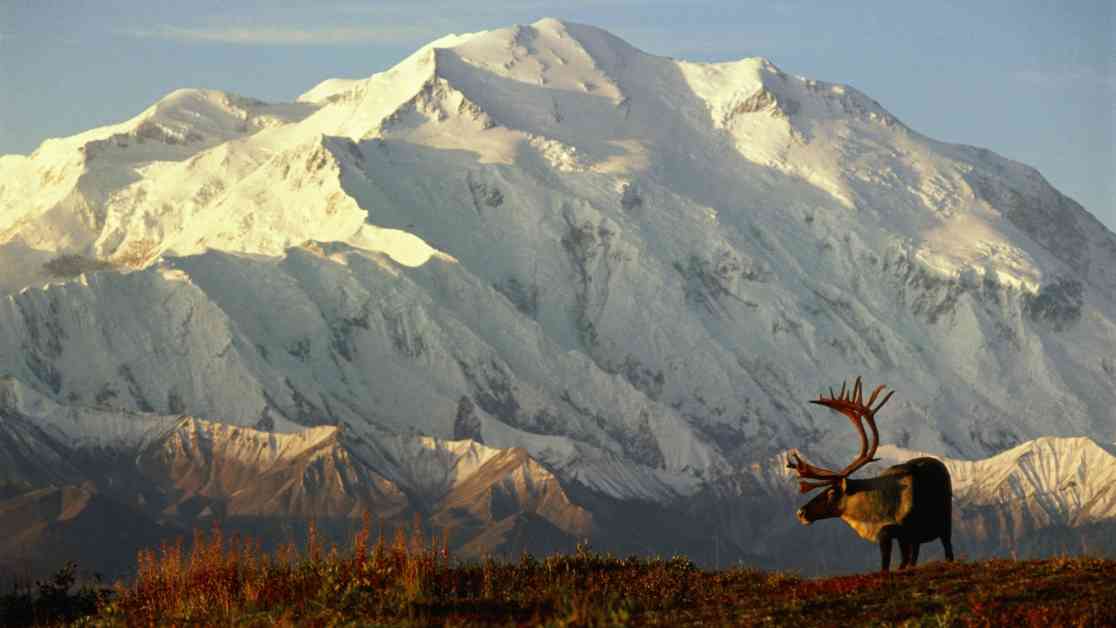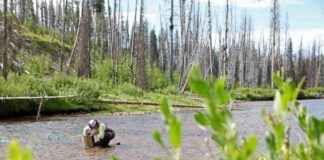In a recent political move, President Donald Trump has stirred controversy by renaming the iconic Mount Denali in Alaska back to Mount McKinley. This decision, which has sparked backlash from both Alaskans and Indigenous communities, sheds light on the complex history of naming practices and the power dynamics embedded within them.
Mount Denali, a prominent landmark in Alaska, holds immense cultural significance as the tallest mountain in North America. The name ‘Denali’ itself carries a deep connection to the local Indigenous communities, with roots in the Koyukon Athabascan language meaning “the high one.” Despite this historical significance, the mountain was renamed Mount McKinley in 1896 by gold prospectors in honor of then-Republican presidential candidate William McKinley, who never set foot in the region.
The Obama administration’s decision in 2015 to restore the mountain’s original name to Denali was a step towards recognizing and honoring the Indigenous heritage and cultural identity tied to the land. However, President Trump’s recent move to revert the name back to Mount McKinley has reignited the debate around the erasure of Indigenous voices and histories in the naming of geographical landmarks.
Indigenous Naming Practices: Reclaiming Identity and Heritage
Sonia Vent, a Koyukon Athabascan elder, emphasizes the importance of preserving Indigenous place names as markers of identity and connection to the land. For Indigenous communities, the act of naming holds profound cultural significance, reflecting a deep-rooted relationship with the environment and its spiritual significance. The renaming of Mount Denali to Mount McKinley not only erases this connection but also perpetuates a colonial legacy that marginalizes Indigenous voices and histories.
Author Susan Schrepfer delves into the gendered nature of naming practices, highlighting the historical subjugation of women and the environment through the masculinization of landscape features. The renaming of geographical sites after male figures while neglecting Indigenous women’s contributions reflects a broader pattern of erasure and domination embedded within settler-colonial narratives. This gendered violence is further compounded by derogatory terms used to label Indigenous women in geographic nomenclature, perpetuating harmful stereotypes and reinforcing power imbalances.
The recent resurgence in efforts to restore Indigenous place names, such as the Eastern Band of Cherokee Indians’ successful campaign to rename Clingman’s Dome to Kuwahi, signals a broader movement towards decolonizing geographical representations and reclaiming Indigenous heritage. The renaming of Mount Evans in Colorado to Mount Blue Sky, in honor of the Arapaho people, underscores the importance of acknowledging and honoring Indigenous voices in shaping the narrative of the land. By recognizing the cultural significance of Indigenous place names, communities seek to challenge dominant narratives and assert their right to self-determination and representation.
The broader implications of President Trump’s decision to rename Mount Denali to Mount McKinley extend beyond mere symbolism, reflecting deeper power dynamics and historical injustices embedded within the landscape. As Indigenous communities continue to push for the restoration of their place names and narratives, the conversation around decolonizing geographical representations and honoring Indigenous heritage gains momentum. It is imperative to recognize and respect the diverse linguistic and cultural traditions that shape our understanding of the land and its significance to Indigenous communities.














